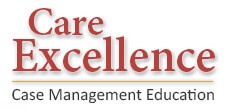The Importance of Health Literacy When Facing Chronic Illness
 By Theresa E. Jenner, MSW, LICSW, CCM
By Theresa E. Jenner, MSW, LICSW, CCM
Research and anecdotal experience frequently remind caregivers that low health literacy among patients can significantly impact outcomes and increase healthcare costs, especially in the context of a chronic illness. Yet to understand the impact of low health literacy, one must first understand the meaning of the term.
Federal statute defines “health literacy” as “the degree to which an individual has the capacity to obtain, communicate, process, and understand health information and services in order to make appropriate health decisions.” In simpler terms, does a patient understand her illness, its treatment and its progression? Can a patient communicate with her care team when she has questions or concerns?
The National Health Council estimates that 133 million Americans are living with a chronic disease. These people have various levels of functioning in the community. They may be living alone, dependent on caregivers or residing in a long-term care facility.
Case Managers as Patient Educators
Patients don’t know what they don’t know. Worse, sometimes they don’t know what they believe they do know. Therefore, it is frequently up to the health professional (e.g., a case manager) engaging with a chronically ill patient to assess the patient’s baseline health literacy and her capacity to improve health literacy.
An AMA Foundation study, Health Literacy and Patient Safety (Weiss, 2007), found that 80% of older adults have difficulty understanding and completing health forms and documents, and 66% of older adults have difficulty understanding information about prescription medication. People over age 65 are those most likely to experience chronic illness.
Even a modest improvement in health literacy may improve outcomes, result in fewer readmissions, and reduce overall per-patient healthcare costs.
Details Matter in Effective Interventions
Although there is a clear need for improved health literacy, many of existing programs are falling short. Why? There are many reasons, some of which are complex and some of which are not. Many issues arise simply from the failure to understand the education and experience levels of the target patient population.
Important factors to be considered include:
- What language should the education be conducted in?
- Do patients have transportation and child care to attend the classes?
- At what level do the attendees of the group read at?
- Are there superstitions that will cause the patient or family to ignore information presented to them?
These and many other questions need to be answered when designing an effective intervention to improve health literacy.
What a Patient Doesn’t Know Can Hurt
Recently I had the opportunity to interact with a patient who had been admitted to a local hospital for food poisoning. She re-presented to the emergency department three days after discharge from the hospital with complaints of diarrhea. Upon assessment by the physician and myself, she stated she had been following the BRAT diet, but she had eaten chocolate ice cream the night before. She reported that today she ate vanilla ice cream and was surprised with similar results.
When the physician pressed her as to why she was surprised that gastrointestinal distress persisted, she stated that she thought vanilla ice cream would be “easier” on her stomach than chocolate. It never occurred to the patient that the issue was dairy consumption, and that the flavor of the ice cream had no impact on her health.
This case illustrates how crucial assessing a patient’s understanding of her illness (or lack thereof) can affect her health outcomes. Whether it is understanding diet restrictions and triggers to environmental outcomes on chronic illness, the lack of understanding and the impact on health is the biggest challenge we face as health care providers on ensuring high levels of health literacy among the patients we serve.
Health literacy is needed to improve health disparities among underserved populations, especially populations with high levels of chronic illness, suffering from congestive heart failure, asthma, diabetes and others to name a few. If a parent does not understand how their own tobacco use is impacting their child’s asthma flares, improvement will not be seen in the control of asthma symptoms.
Care Management Tools in Assessing Health Literacy
As case managers and health care providers, we have the privilege of meeting people as they are seeking care for their illness, assessing their ability and readiness to learn and delivering the information in an appropriate manner so that the patient can make the best possible choices to improve their health.
Tools such as the Short Assessment of Health Literacy and the Rapid Assessment of Adult Literacy in Medicine are both available in English and Spanish and can be beneficial when working with patients and families to determine the baseline information they have about their illness. Both AHRQ and the CDC have excellent validated tools that can be used in the hospital or office setting.
While using a tool to assist in your assessment can be useful, it cannot take the place of a conversation to truly gauge where your patient is in learning about managing their illness.
We are all working towards delivering the best possible care with the best possible outcomes to our patients. As healthcare providers, we are privileged to work with patients and families at various points in their care continuum. With that privilege comes the responsibility for giving patients and their families all the needed tools and the understanding of those tools to achieve their goals, including well-designed tools to improve health literacy.
About the author
Theresa E. Jenner, MSW, LICSW, CCM, is the Director of Care Continuum Management at Brigham & Women’s Hospital in Boston MA, and a consulting associate for The Center for Case Management, a Massachusetts-based consulting company that develops tools and systems for managing outcome-driven care for hospitals, health systems and other organizations
